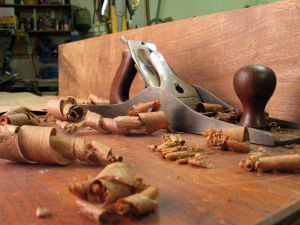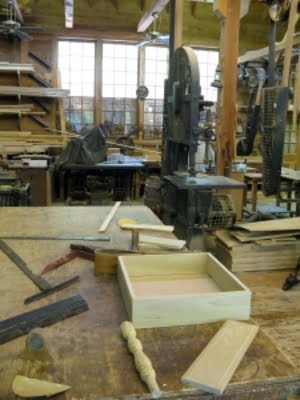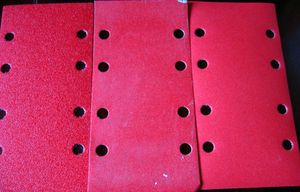Getting the most out of your woodworking projects starts with the right tools, materials and know-how to get the project done right. But there are a few tips that even professional woodworkers overlook when they create their own projects. Use these five must-know woodworking tips and you can be sure your first woodworking project will run smoothly and efficiently.
Budget
Many times, when you’re looking over plans for a woodworking project, it’s easy to overlook the material budget. This might be because the piece looks too rewarding, fun or challenging to build. Budget problems during the middle of a project have killed more woodworking plans than you can imagine. Be sure before starting any woodworking project, you create a cost breakdown list of tools and materials to ensure you budget remains intact from the beginning through the end of your woodworking project.
Get Familiar with Tools
There is nothing more dangerous than a beginning woodworker who buys a large power tool for the first time and doesn’t know how to use it. If you’re looking to use power tools for the first time, take a class, read a book or watch someone use the tool first to help prevent dangerous accidents from misuse. Tool rental services can provide you with a tool to use and demonstrate its use for you, helping to make you familiar with new power tools.
Start Small
Don’t let your eyes fool you. It’s just like when you go shopping when you’re hungry-you buy a bunch of stuff you don’t need. The same goes for beginning woodworkers who think they can do advanced projects without getting their feet wet with something smaller first. Start small with projects that will teach you the basics before you tackle more complicated woodworking projects.
Buy Scrap
Many woodworkers who are just starting out plan to build something extravagant or difficult when choosing their first project. While it’s best to start small when you’re a beginner, it’s also best to start cheap. Buy cheaper materials and damaged scrap where you can. Any beginner is bound to make mistakes, and scrap wood can help keep down the cost while allowing you the practice you need to get good and hone your woodworking skills.
Practice Makes Perfect
Repetition of projects using a variety of tools and practicing new skills and techniques all help the beginning woodworker improve skills and work towards becoming a novice and professional woodworker. Be sure that you practice the basics first and know how to use each of the tools in your woodworking arsenal before moving to more challenging projects.
A good way to get practice without having to spend a fortune on tools is by taking a shop class at your local vocational school. Some stores like Home Depot and Lowe’s offer woodworking classes that teach how to use specific woodworking tools and techniques.





